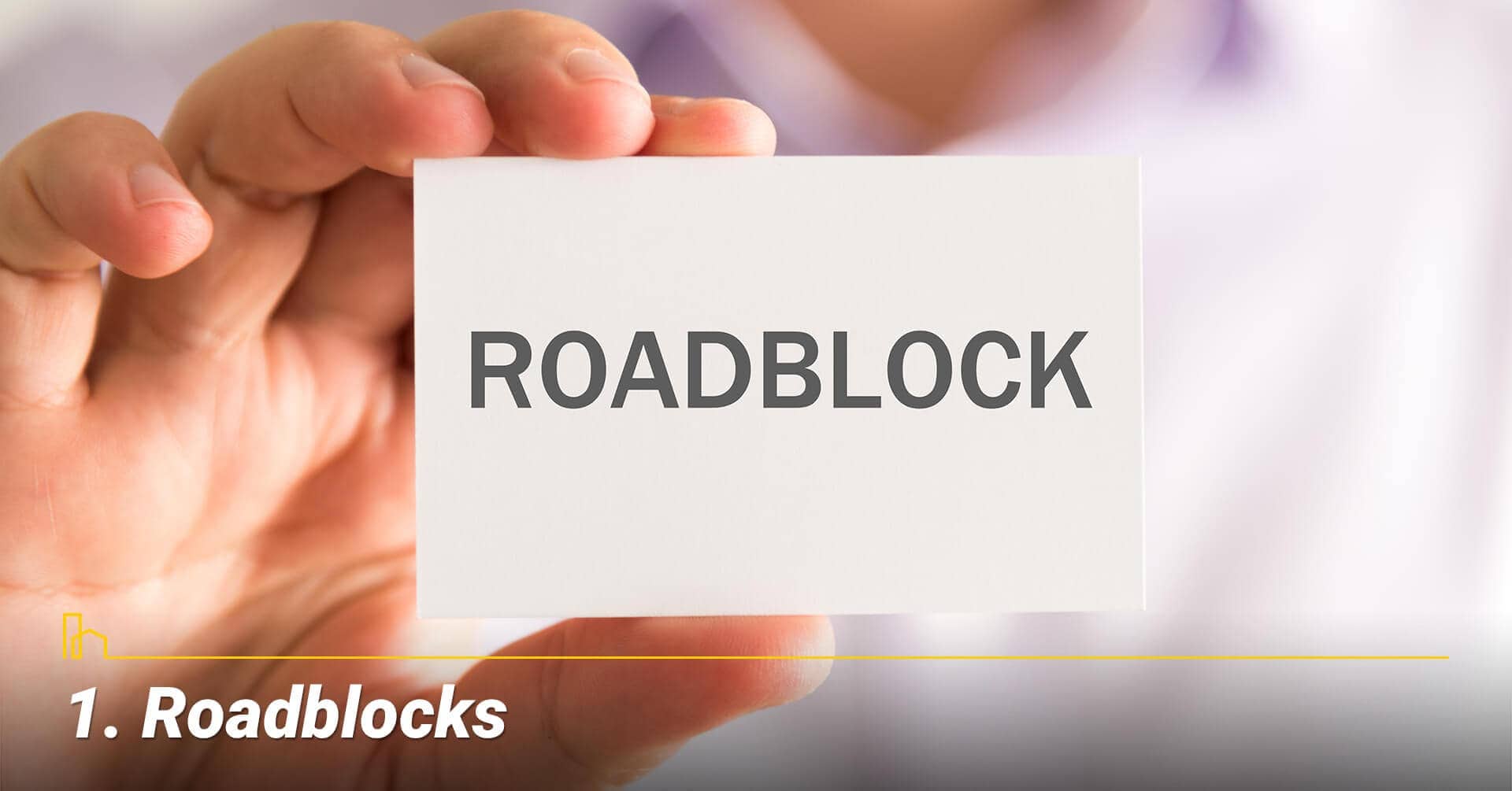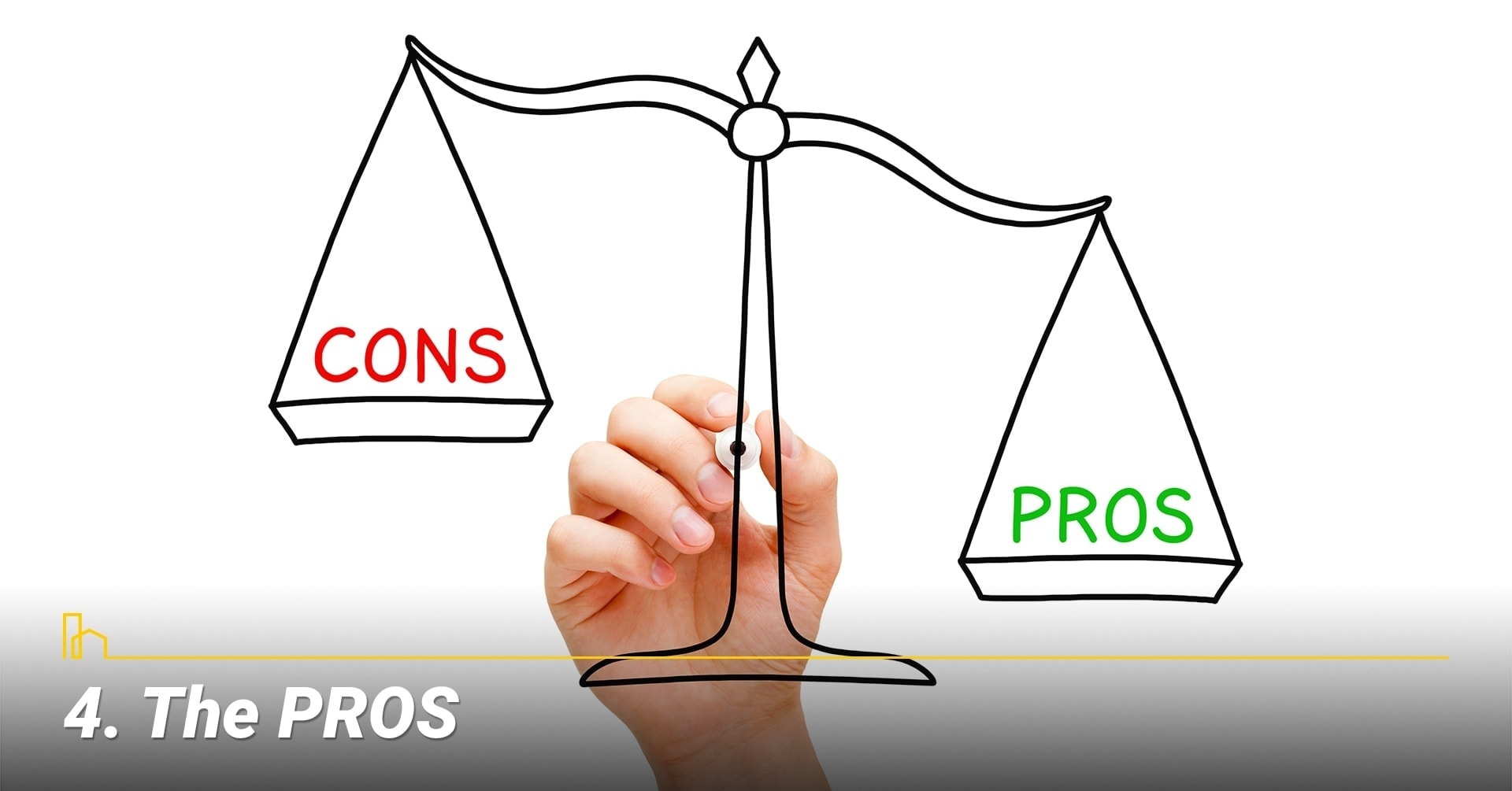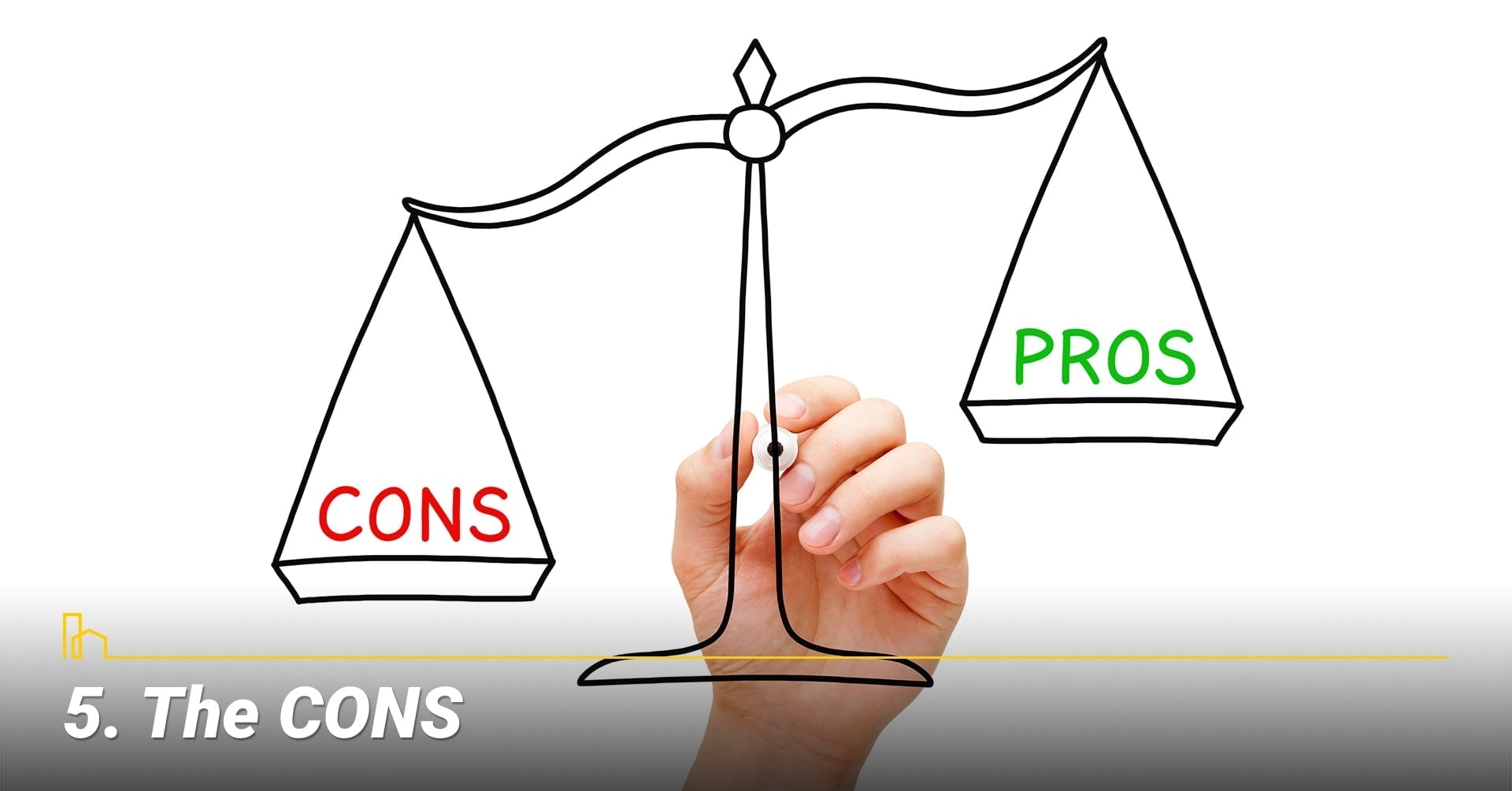6 Key Things You Must Know About the Contract for Deed
- Author:by Kaylee Pham
In this article, we’ll help you understand contract for deed financing as well as the pros and cons that accompany it. After reading this article, you will have a clear understanding of the process and know if this is a route you want to explore further. Let’s get started.
When we’re trying to purchase a home, we don’t often hear the term “contract for deed,” do we? Most of us will seek traditional financing—FHA, VA, conventional, rehab, etc.—but we don’t often hear about the contract for deed option.
In addition, many lenders don’t even have such a finance option available for those who want it.
If you’re trying to buy a home (or if you’re a professional who is unfamiliar with the contract for deed option), please know that contract for deed financing is available. You just have to know where to look for it.
Here are 6 Key Things to Understand About the Contract for deed.
Table of Contents:
1. Roadblocks

If you are looking into the contract for deed option, it is probably because there are roadblocks preventing you from qualifying for traditional financing.
The fact that you’ve been denied by traditional lenders doesn’t mean that you’re a bad person, or that you’ve done something bad. It might be because you’ve recently lost your home or your business or filed for bankruptcy due to unforeseen circumstances.
Now you have worked and saved up enough for a small down payment, but you can’t purchase a house for your family due to the guidelines set by lenders and housing developments.
For example, if you recently went through a short sale, you’ll have to wait a minimum of two years before you can be considered for FHA financing on your next home. If you recently went through a foreclosure or bankruptcy, you’re looking at three years for the FHA program or five years for a conventional program in order to qualify for financing to purchase a home.
One option you have is to rent until you meet the requirements, but renting comes with its own restrictions. What if you have a larger family? How many places have as many bedrooms as you need? And even if they do, what does the rent look like?
If you are a savvy consumer like me, you won’t even want to explore that option. You’ve just lost a big chunk of what you’ve built up, and now you’re looking to pay for someone else’s mortgage for the next few of years? It’s not an appealing choice.
When your options are limited, it’s time to consider purchasing on a contract for deed.
5 Best Places to Live in Texas
Each of the five large cities described are chock-full of neighborhoods that are favored by families with children, young professionals, and retirees. We’ll focus on eight critical attributes that often define a city: History and population, Lifestyle, Affordability, Housing market and neighborhoods, Healthcare and safety, Employment…
2. Like Buying a Car

When I explain purchasing a home on a contract for deed, I want you to think of the process of buying a car.
When you’re looking to finance a car, you will have a better interest rate for a brand-new car than if you were to purchase a used car. The terms will be anywhere from 24 to 72 months, depending on your income and debt-to ratios.
You will have the legal right to the car as long as you make the monthly installment, but when you default on your payments (for, say, 60 to 90 days), your car will be repossessed. It will go back to the servicer who holds the legal title to your car.
The financing terms are relatively similar when you buy a home on a contract.
Pros and Cons of Living in Florida
If you’ve decided to make Florida your new home, you’re in luck – it’s a big and varied place, with something for all ages, family dynamics and budget. Continue reading as we dive into some notable Pros and Cons about the state itself, the top cities to live in across a variety of categories, and…
3. Buying a Home on a Contract

When it comes to buying a home on a contract for deed, of course, there is a lot more to it—but it is similar to buying a car in terms of the interest rate, the monthly terms, and the default time frames.
Now let’s dig deeper into the contract for deed home purchase.
In traditional financing, your lender issues a lump sum payment to the seller and their lender (if any). In return, you, as the buyer, get a deed to the property and you can take possession immediately.
On a contract for deed, on the other hand, the seller agrees to be the lender. The seller allows you to pay for the real estate through installments instead of a lump sum. When you take possession, the seller continues to hold the legal right to the property.
Over time, you excise the terms as specified in the contract. Once the terms are complete, the seller conveys the legal title over to you through a deed.
The basic terms on the contract for deed can vary from contract to contract. It depends on what the seller is willing to accept. Generally, the seller will look for a down payment anywhere from 10% to 20% of the purchase price. The interest on a contract for deed could be anywhere from 1% to 2.5% higher than the current market rate.
Lastly, most sellers will only consider financing with a balloon payment at the end. That means you will have anywhere from three to five years of fixed principal and interest payments. The monthly mortgage payment will amortize over a 30-year period, but after the term is up, the remaining amount will be due all at once.
You will then have to come up with the remaining (often large) balance to pay the seller—usually through a new loan from an institutional lender. Otherwise, you will be in default and risk losing everything you’ve invested in the last few years.
Recommended for you
4. The Pros of Contract for deed

The benefit of a contract for deed is that the buyer’s credit score does not have to meet strict guidelines. The buyer could have been through a recent short sale, foreclosure, or bankruptcy, but as long as the buyer and seller agree to the contract, it can go forward.
As long as the negotiation is acceptable to the seller, then you can buy. The down payment money doesn’t really need verification either, as long as you can make the payment.
Once you close on the property and take possession of the house, you are is responsible for utilities, property insurance, and property tax. Any repairs and maintenance will be on you, the buyer. It is practically your property.
You can claim property tax paid and interest paid when you file for your yearly tax return. You can even list the home for sale if you see the market go up or if you feel you can get a better home after a couple of years.
If you plan to stay for good, you should plan accordingly—like getting your credit score cleaned up, making sure all the negative items are removed from your credit report.
That way, by the time you’re looking for new financing, there won’t be an issue with qualifying.
Buyers, make sure to give yourself plenty of time to find new financing so that you won’t be looking at default when your contract for deed term comes to an end.
The 10 Best Places to Live in South Carolina for Families
In addition to the coastal beauty of well-known cities like Charleston and Myrtle Beach, South Carolina has an abundance of places across the midlands and the upstate filled with opportunities to enjoy small-town charm or big-city living…
5. The Cons of Contract for deed

When buyers do not prepare in advance, they may face the downsides of the contract for deed.
Most importantly, when buyers default, they lose all the money paid thus far toward the property. The seller can immediately take action and foreclose on the property and most of the time the buyer has no recourse against the seller. The buyer could be looking at a timeline of just 60 days before being evicted from the property.
There are other (less common) issues the buyer could face. The seller could file for bankruptcy before the buyer has had a chance to take over legal title. Or the seller could pass away, causing the property to go through probate.
In either case, the buyer’s contract would be jeopardized. The buyer would need to seek legal advice immediately, since they might have to go through extensive litigation to fight for ownership of the property.
Another potential pitfall could occur when the buyer is ready to take title to the property, then finds out the property has a bad title. Maybe it did not go through the proper closing at the time the contract for deed was processed with the seller.
10 Best Places to Live in Wisconsin
Wisconsin is a friendly and casual place to enjoy all four seasons. Best known for its dairy farms and pro sports, it is also home to tech companies and a world-class research university. We assign a HOMEiA Score for each city, which provides an overall assessment of its safety and appeal as a place to call home…
Finally, the buyer should always check whether if there is still a mortgage on the property. In most contract for deed cases, the seller owns the property free and clear. But if there is a mortgage on the property, the buyer must make sure to have a copy of the written approval from the seller’s lender allowing the contract for deed to take place.
In most situations, the lender can immediately foreclose the current loan they have with the seller if they discover a contract for deed sale has taken place. That is because most mortgages have a “due-on-sale” clause, which makes the entire balance of the loan come due as soon as the property changes hands. If the seller doesn’t follow through, then they have breached the contract with the lender.
For that reason alone, buyers must make sure to have the lender’s consent in place before signing the contract for deed purchase.
Recommended for you
6. Contract for deed Lenders

If the risks of a seller-financed contract for deed seem too high, don’t get discouraged. You have options. In fact, there are contract for deed lenders out there who specifically focus on buyers like yourself. It’s harder for consumers to find these lenders, and not many agents know of them, either, but they do exist.
The typical terms these lenders look for are similar to what the seller would look for: a typical minimum of 10% to 20% down, interest rates from 1% to 2.5% higher than the current market rate, and typically a 5-year term with a balloon payment.
Real estate professionals and buyers don’t need to go looking for a seller who is willing to sell on a contract if they’re working with a lender who accepts contract for deed loans.
You can look at any property on the market and negotiate your offer just as if you were to shop for one using a traditional buying method. Agents should check with the lender to see how they prefer the contract to be written when presenting to the selling side.
Buyers will go through the normal buying process, but when it’s time to close, the process will be handled a little differently than a traditional closing. The closing on the property will go through the title company, just like any other, and the buyer will pay for closing service, but they will not pay for the contract for deed lender’s closing cost.
The contract for deed lender will fund the lump sum to the seller and the seller’s lender (if any). Then they will turn around and create a contract for deed with the buyer. The buyer won’t need to pay the lender’s closing costs at this time but will pay for the lender’s closing cost when they seek new financing.
Top 10 Best Places to Live in Wyoming for Families
Wyoming is known for its big skies, open prairies and cowboy boots — yet it’s more than that. It reminds you that open space matters. In Wyoming, space is allotted for what’s essential, and the rest is left open for all to enjoy. It’s a place where you can relax, breathe in and breathe out…
Going Full Circle

My heart goes out to those who seek these alternative options, because I know they have just gone through some hardships; otherwise, they wouldn’t be looking to go down this route. No one wants to pay a higher interest rate or take the risk of losing their hard-earned money.
Then again, often it’s better than renting and waiting it out. When you decide to choose this route, make sure you get all your ducks in a row as quickly as possible so you can get yourself out of the contract for deed loan; the earlier the better.
For professionals, when you’re helping a client who is purchasing with a contract for deed, try to go the extra mile and keep tabs on them. Check in once or twice a year just to see how they’re doing. Maybe send out reminders so they don’t forget, as we always do in our busy lives.
Hopefully, they will reach out to you when they are ready to obtain the legal title and you can refer them to a few good loan officers who can help. Otherwise, if they wish to sell, you can assist them with the selling process and help them look for their new home. Whatever it is, knowing you’ve gone full circle with a client is the greatest feeling, wouldn’t you agree?
I hope you find this article helpful. If you do, please share it on your Facebook page so many others can benefit from it as well. Thanks in advance!
10 Best Places to Live in Virginia in 2024
Virginia is an amazing place. Where else can you find mountains and beaches, high-end horse-racing communities and small towns with neighbors who travel by wagon — all within a two-hour drive?…


































































































